
11 May, 2018
Trump’s Iran deal reversal proves Israel controls the U.S.
The U.S. decision to unilaterally exit the nuclear agreement with Iran cements the country’s status as the greatest threat to global stability, totally subservient to Israel, the Jewish lobby and its own military-industrial complex. The latest in a series of my-way-or-the-highway policy reversals, the Trump Administration has no regard for international norms and is accelerating the rapid decline in the level of America’s global trust and respect. The stage is being set for another seismic disruption in international relations that will have a long-term impact on travel & tourism.
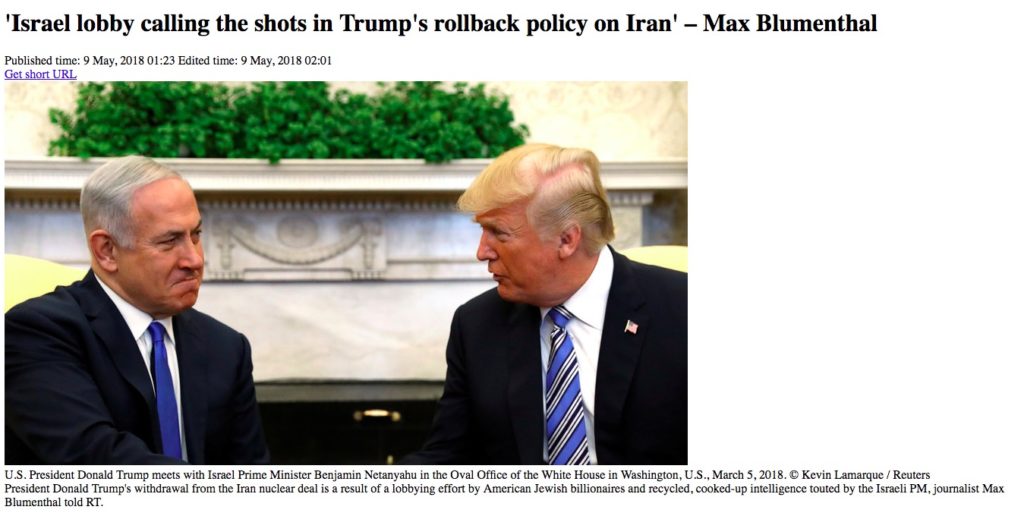
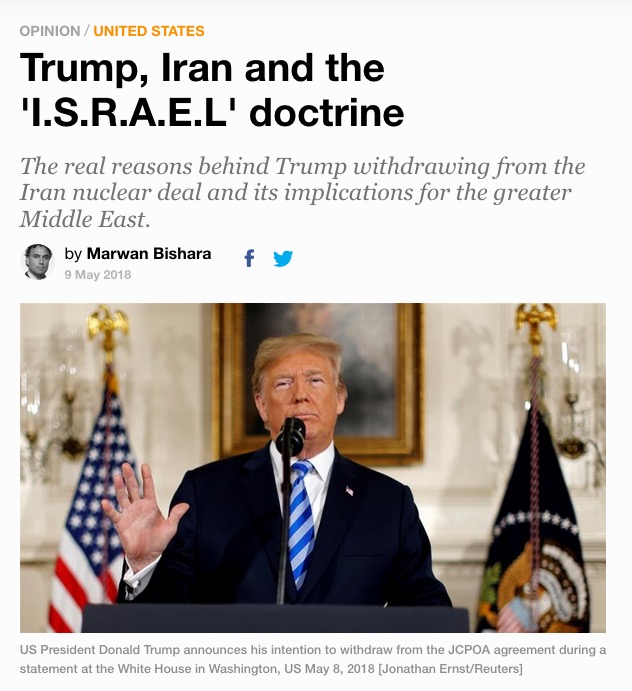
At some stage, travel & tourism will have to pull its head out of the sand and raise some long-overdue questions about the future of U.S. “leadership.” The following commentary is designed to set the ball rolling. It cites 12 factors proving how United States Inc., has become much too powerful and unaccountable, how its corporations have contributed to global geopolitical, economic and environmental mayhem and how multilateral power structures help it preserve its global dictatorship.
In other words, the United States is now well and truly a part of the problem, no longer a part of the solution. Debating these issues is well within the right and responsibility of the travel & tourism industry at large. The over-arching job of our supposedly visionary industry thought-leaders is to help the rest of us preserve ours. They can choose to sweep looming threats under the carpet today but should be ready to face accountability tomorrow.
1. Contribution to global warming: In the 1970s and 80s, the post-war economic boom was based on the availability of cheap oil which was selling at a paltry US$5 a barrel. All the so-called “rich” industrialised countries led by the United States attained their lofty status because of cheap energy, mainly from the Islamic countries of the Middle East. As they prospered in the decades after World War II, they spewed out billions of gigatonnes in greenhouse gases. That makes the world’s leading economy, the United States, also the leading cause of ecological disaster. Today, the U.S. is averse to be seen as part of the problem because it does not want to pay to fix it.
2. Contribution to the “other global warming”: If the Middle East is incessantly in the news for its conflict and violence, the root cause is the long-festering Israeli occupation of Palestine. The United States has been at the centre of efforts to try and broker a settlement. It has claimed to be an honest broker. In reality, it has always been a dishonest broker, squarely on the side of Israel. It is the Israeli-Palestinian dispute, as well as the United States’ quest to ensure access to its oil supplies, that has led to so much chaos, conflict and instability throughout the Middle East and Islamic world and beyond. The U.S. has benefitted on all fronts. The Arab countries remain the biggest customers of U.S.-made weaponry, as well the best on-site human testing grounds for that weaponry. The Arabs pay with their blood and money. One day, they will wake up to this reality.
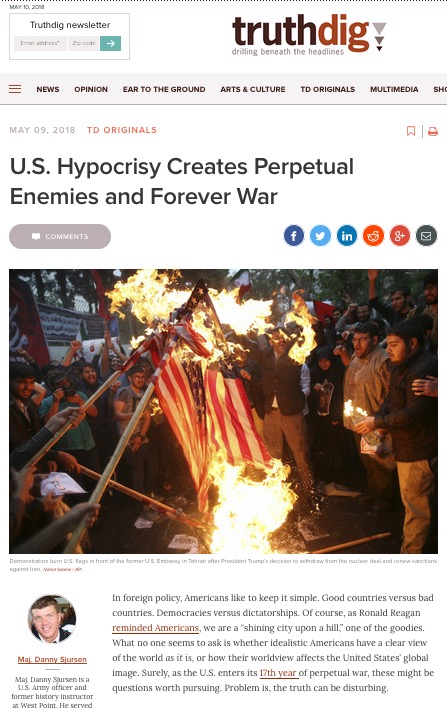
3. Failure of capitalism: Even the World Economic Forum, the annual caucus of the world’s richest capitalists, now admits that something is seriously wrong with the global economic development model. Although the neoliberal championing of globalistion, liberalisation and free trade has undeniably created millions of jobs, it has also exacerbated the rich-poor income gap. The United States was once at the forefront of open markets and free trade. It is now reversing course. It’s my way or the highway. U.S.-driven capitalism and free trade is in serious need of overhaul and rebalancing to make it more balanced, sustainable, inclusive and just.
4. Failure of freedom and democracy: Alongside open markets and free trade, the United States has also championed political freedoms, human rights and democracy. That agenda, too, has worked in many countries but is no longer credible. Many of its own democratic institutions are under siege. The media certainly is no longer as independent, influential and free as it was in the days of Vietnam and Watergate. The political system is stacked with cronies and lobbyists. The Supreme Court is lined by judges who are often described as “conservative.” If leadership by example is a global mantra, the United States no longer has the moral high ground to claim it.
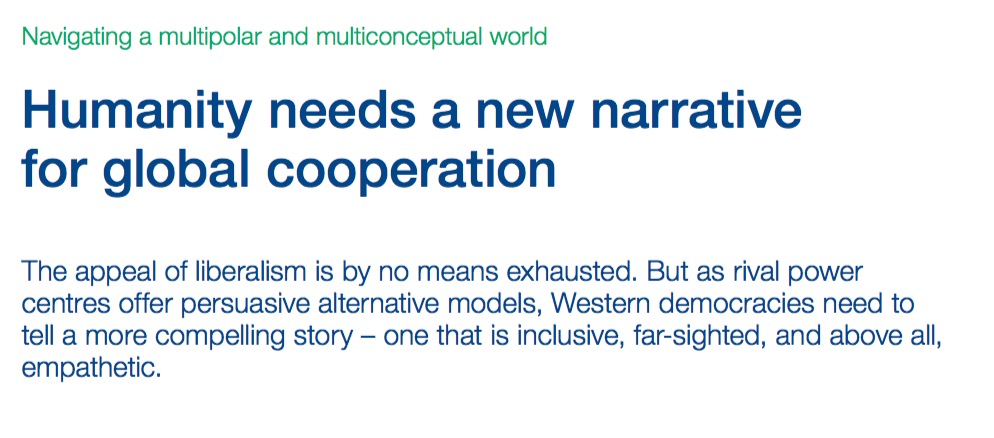
Source: World Economic Forum
5. Control of multilateral power structures: International institutions such as the United Nations, IMF and World Bank were set up after World War II to underwrite peace, avert geopolitical conflicts and ensure financial and economic stability. All their administrative and operational structures were forged in a way that puts the United States in the driving seat. In the United Nations, the U.S. is one of five Big-Power countries with a veto, which it has wielded more than any of the others, nearly always in relation to the Israel-Palestine issue. In the IMF and World Bank, shareholding structure is skewed in favour of the United States. Ditto in the Manila-based Asian Development Bank. No global geopolitical or economic decision can be made without the involvement of the U.S. in some way or another.
6. Health problems: American corporations are the biggest exporters of pizzas, ice creams, burgers and cigarettes. Pizza Hut, KFC, McDonalds, Coca Cola, Pepsi Cola, Burger King, Swensens, Starbucks and Marlboro, are all quintessentially U.S. products. Cigarettes are now a proven health hazard and slowly being banned universally. As leading causes of heart disease, obesity, diabetes and numerous other health crises, fast food and colas will also face their day of reckoning. Sicknesses they cause see patients landing up in hospitals where they are dispensed medication largely manufactured by U.S. pharmaceutical companies. Either way, American corporate coffers fill up.
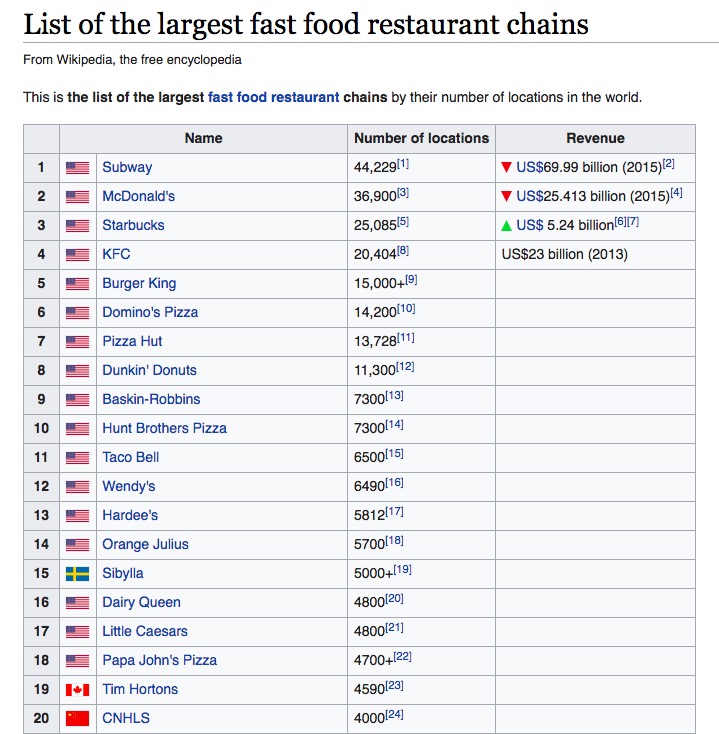
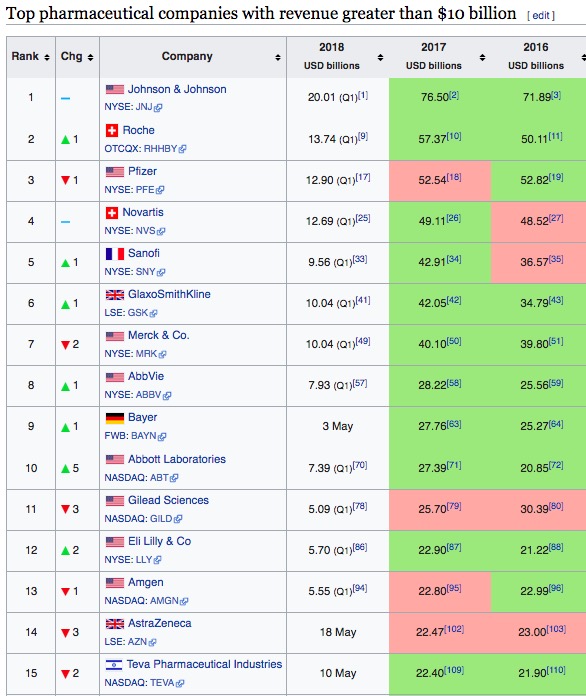
7. Control of global media: The media landscape today is dominated by Facebook, Twitter and Google. Born as benign social media networks and search engines, they are now corporate behemoths with the power to monitor and dominate your life. Losing influence and importance are the formerly dominant “legacy” media such as the New York Times, Washington Post, Time and Newsweek magazines, major TV stations such NBC, CBS and ABC and economic publications such as the Wall Street Journal. In addition, Hollywood rules the global entertainment industry. Their combined influence on the public mind is incalculable.
8. Money: All forms of trade and consumer spending are dominated by U.S. financial instruments and corporations. The dollar is the most widely-used global currency. Virtually all global inter-bank transactions go via US banks. Credit card giants Visa, MasterCard and American Express are unmatched in sheer volume of spending transactions. They hold enormous amounts of data on who is spending exactly how much, where and on what. These corporations are not just innocent monetary middle-men in the transaction process; they can actually drive expenditures.
9. Finance and investment: In the heyday of investment flows, the lead U.S. corporations included gilt-edged names such as Goldman Sachs, Lehman Brothers and Merrill Lynch. The ups and downs in the New York stock exchange, as well as interest rate adjustments by the U.S. Federal Reserve Bank almost instantly have a global ripple effect. In addition, companies such as Moody’s, Standard & Poor’s and Fitch Ratings, control 95% of the credit ratings business. Countries have to constantly make sure they remain in the ratings agencies’ good books.
10. Weapons and armaments: The United States is the world’s largest arms manufacturer and exporter, dominated by merchants of death such as Raytheon, Northrop Grumman, Boeing, Lockheed Martin, General Dynamics and more. Given the sheer size of U.S. military budges, this massive and unaccountable industry is a key employer and driver of economic growth. Arms dealers need conflicts to sell their wares, and there is no shortage of conflict especially in the Middle East. Again, the U.S. benefits at both ends.
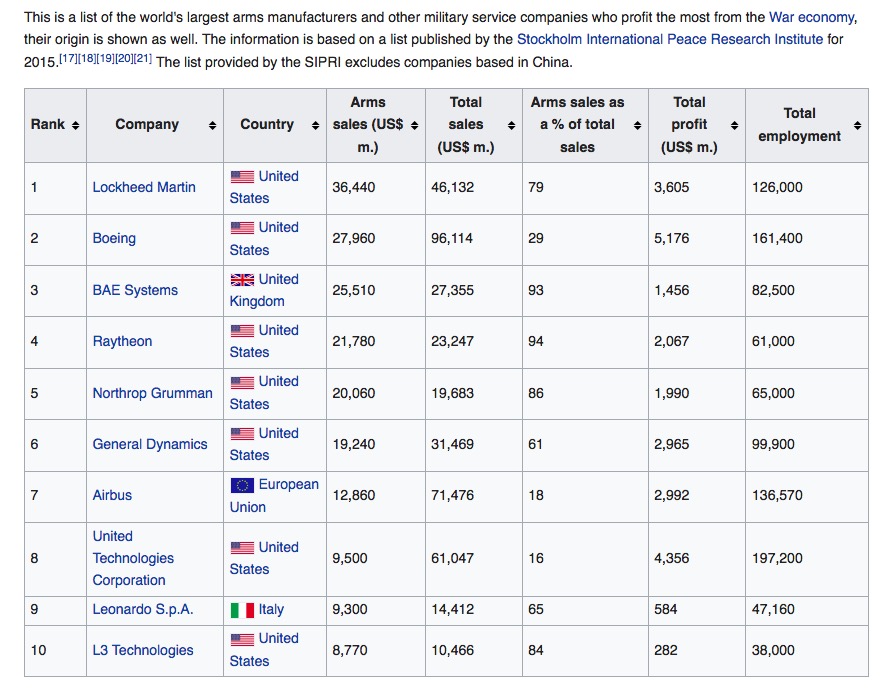
11. Travel industry dominance: In addition to the power of the credit cards, look at the market dominance of the OTAs such as Agoda, ratings websites such as TripAdvisor, hotel chains such as Hilton, Sheraton, Marriott, Hyatt, Inter-Con and newcomers such as Uber and AirBnB. They know just about everything about global travel patterns.
12. Zero accountability: Thanks to all the above public and private sector resources, as well all its diplomatic and intelligence channels, the U.S. can do whatever it wants – with no fear of being held accountable. The U.S. led a “coalition of the willing” to attack Iraq after claiming that the Middle East country had weapons of mass destruction. After leaving thousands of dead and injured, and Iraq a devastated country, not one thimble-full of WMDs were found. None of the U.S. leaders or policy-makers were held responsible for that grotesque lie and fiasco. Since then, the regime change agenda has expanded to include Libya and Syria. In April 2018, the U.S. attacked Syria. In May 2018, the U.S. did Israel’s bidding and pulled out of a painstakingly-negotiated nuclear agreement with Iran. In the midst of this chaos, the Israel-Palestine crisis continues to fester. While Palestinians continue to put themselves in the line of fire in pursuit of independence and statehood, Israel remains an “oasis of peace and stability”.
Conclusion
This listing is far from comprehensive. Among the missing names are I.T. and ecommerce giants such as Microsoft, Intel, Apple and Amazon. No other country can match this armada of geopolitical, media, monetary and military firepower. A detailed history over the last few decades could very well prove their role in support of U.S. interests – be it controlling oil supplies, ensuring the dollar’s domination, advancing regime-change agendas, destabilizing financial and currency markets, “fixing” election results, and much more. None of this is happening in isolation. Behind the scenes, close coordination between and amongst these various players is not beyond the realm of imagination.
The United States is determined to preserve its global dictatorship by using all the available resources. But as I have repeatedly written over the years, no empire lasts forever. Absolute power corrupts absolutely, as is happening in the U.S. today, and the age of accountability catches up with everyone. Regardless of whether they are czars, emperors, dictators, demagogues, generals, prime ministers, presidents or kings, Unjust Rulers Always Fall. Always.
Sadly, like all revolutions and counter-revolutions, casualties pile up on all sides. The Trump Administration is only its second year. A trade war with China is simmering. Relations with Russia are also in confrontational mode. There is a long way to go still.
Source: World Economic Forum
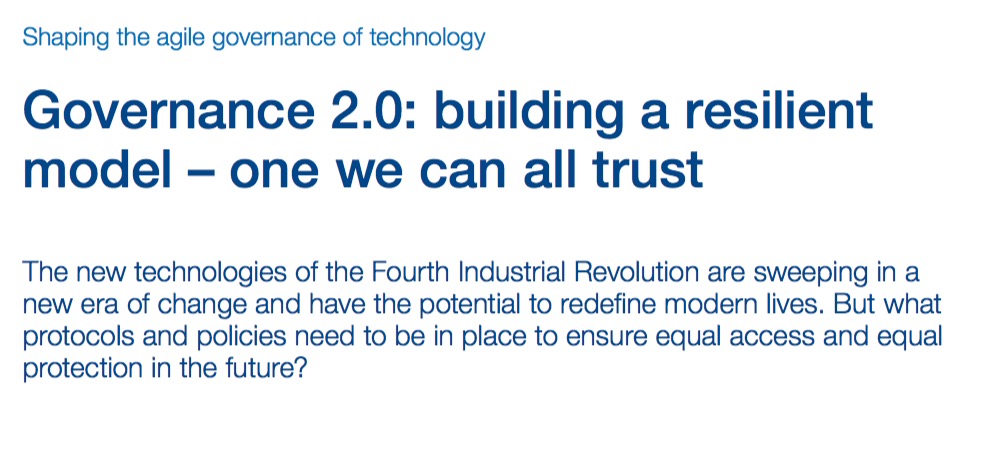
Source: World Economic Forum



Liked this article? Share it!